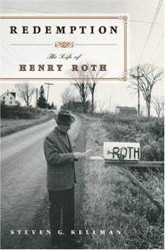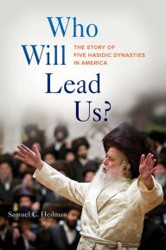Academic scholars of rabbinic texts may not seem like the most interesting of people, but Aaron Hughes has produced a compelling and very readable biography of the recently deceased Jacob Neusner. One of the most prolific authors in human history, with over 1,000 titles to his oeuvre, Neusner led a colorful life filled with controversy and argument, to a large degree of his own instigation. Hughes calls him one of the most influential American Jewish thinkers of the 20th century, and presents a strong case in support of that argument.
Hughes portrays Neusner’s upbringing as paradigmatic of mid-20th century American Judaism. His Jewishness was always framed by his American-born identity. He never really identified as a Zionist and sharply criticized those who used the Holocaust as a primary means of promoting Jewish affiliation and identity, especially as opposed to textual study and religious practice. In these ways, he distinguished himself from the generation of immigrants who had come before him. In his scholarly work, he sought to bring the study of rabbinic texts to bear on larger questions of religion and ethnicity, in contrast to studying them for their own sake as it is done in religious seminaries or, as he felt, in too many university Judaic Studies departments.
Hughes claims that Neusner succeeded in his academic mission, almost single-handedly, though at the cost of divorcing himself from the mainstream academic Judaic Studies community and its organizations. Many of his former mentors, including such luminaries as Morton Smith and Saul Lieberman, went out of their way to denounce Neusner and criticize his scholarship as flawed. Hughes frames these debates, which inevitably turned bitter, as expressions of Neusner’s academically cosmopolitan approach and his opponents’ more parochial one. He does not really focus on whether those scholars were correct in their critiques of Neusner, whose mistakes, especially in translation, were often real and whose approach has been largely superseded by contemporary scholarship.
As a tenured academic, Neusner felt that a critical part of his job was to create controversy that would generate discussion. He did this by publishing endlessly, often in response to his peers, and with a sharpness that often bordered on invective. One professor commented that while scholars typically write articles in response to their peers’ books, Neusner would consistently publish book-length monographs in response to their articles. Hughes demonstrates the bitter personal fights that Neusner’s caustic approach generated, exacerbating the fault lines that his innovative analysis created. By the end of his career, following several explosive episodes, Neusner’s works were largely marginalized (deliberately boycotted, he claimed) in the greater discussions happening within Jewish academia, even in areas where his research had provided the intellectual scaffolding for later scholars to build around.
As he matured, Neusner gravitated toward Republican politics and fought against the liberalism that he felt was eating away at the meritocratic academic ideals that he valued so highly. In this capacity, he served on the National Endowment for the Arts and National Endowment for the Humanities, and was even nominated to be Librarian of Congress. As a public intellectual, he opposed affirmative action policies as well as identity and ethnic studies in the same way he criticized Judaic scholars that he felt were too parochial.
Neusner’s life does reflect the story of American Jews moving from being an ethnic minority into mainstream white society. The questions his legacy asks, then, are about the cost of that transition and the American Jewish community’s obligation toward other minority groups who have not been as fortunate.
Related Content:





